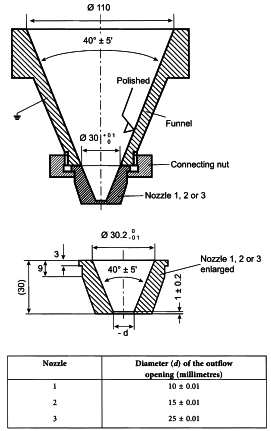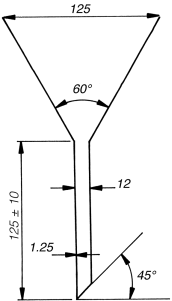Appendix XVII E. Flowability
The test for flowability is intended to determine the ability of divided solids (for example, powders and granules) to flow vertically under defined conditions.
APPARATUS
According to the flow properties of the material to be tested, funnels with or without stem, with different angles and orifice diameters are used. Typical apparatuses are shown in Figures 2.9.16.-1 and 2.9.16.-2. The funnel is maintained upright by a suitable device. The assembly must be protected from vibrations.
METHOD
Into a dry funnel, whose bottom opening has been blocked by suitable means, introduce without compacting a test sample weighed with 0.5 per cent accuracy. The amount of the sample depends on the apparent volume and the apparatus used. Unblock the bottom opening of the funnel and measure the time needed for the entire sample to flow out of the funnel. Carry out three determinations.
EXPRESSION OF RESULTS
The flowability is expressed in seconds and tenths of seconds, related to 100 g of sample.
The results depend on the storage conditions of the material to be tested.
The results can be expressed as the following:

